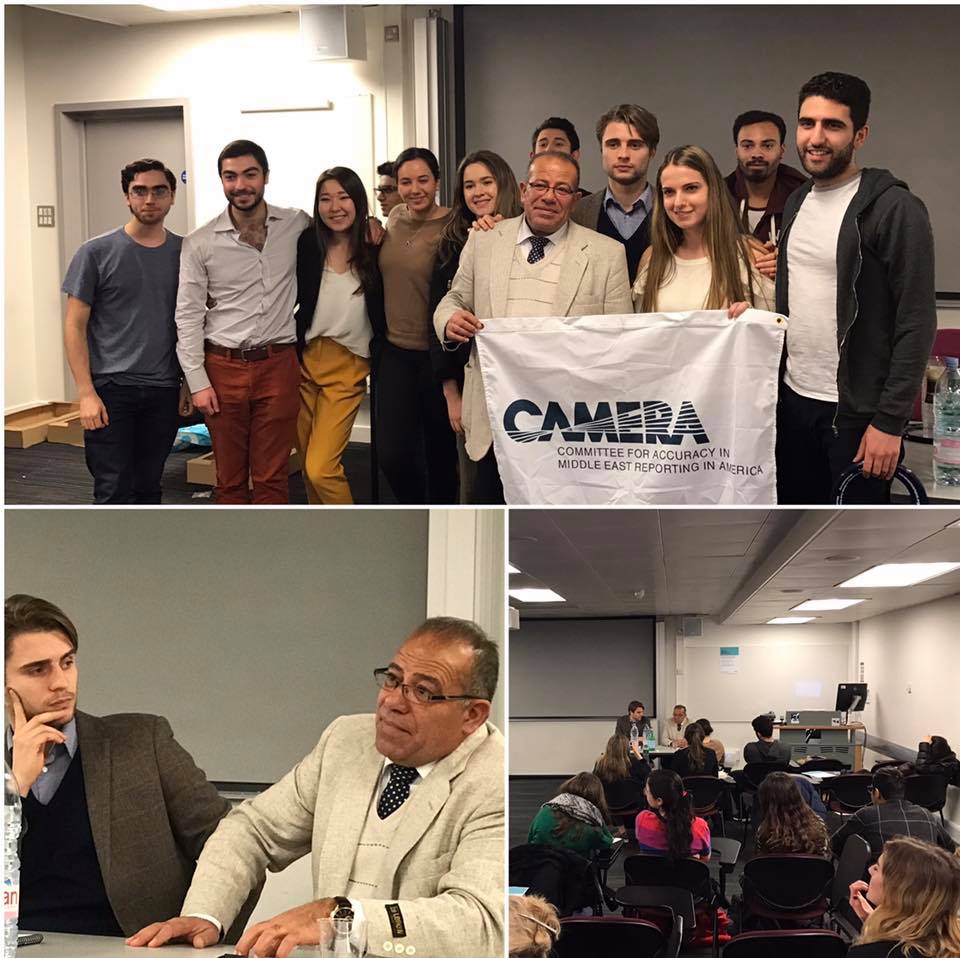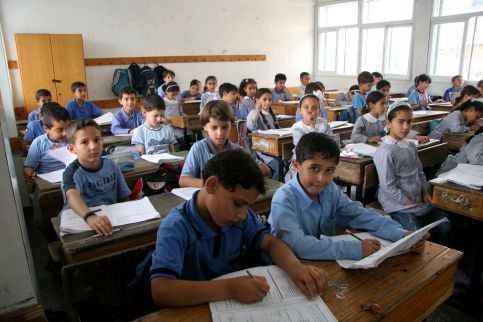With Israel Apartheid Week looming at KCL, Bassem Eid, one of the BDS’ most famous and renowned opponents flew into London with CAMERA on Campus. The event was held as a pre- Apartheid Week, or a pre-Israel hate week, block at King’s College’s Waterloo Campus on the 6th February 2017.

What is interesting about Bassem, and what makes him such a significant speaker, is that he highlights what should be a common goal with the pro Palestinian groups on campus, but shows how most of their efforts are destructive and harmful. Bassem Eid is a journalist that publishes about human rights cases in the Palestinian territories, to emphasise the changes that need to be made to help the community, and the corruption of the controlling powers.
Promoting human rights for Palestinians is a humanitarian goal that should not only concern individuals interested in politics or a particular cause, but a united global matter for all to have a core standard of human rights.
The BDS campaign, a coercive organisation aiming to demonise Israel and put pressure on its economic and political sustainability also have the same claim, to help the Palestinian community, however the strategies which were seen in apartheid week demonstrate that it’s not to promote the quality of their lives, but simply to attack Israel. This campaign aims to create tension between the two societies, aims to cut off economic synergies and trade, to worsen the quality of life of both parties, promoting war, hatred and unease.
At this event, Bassem emphasised that the outer international community is spending too much money and time focusing on the political side to the conflict. However, as a Palestinian, he believes that none of the Palestinians have benefited from these initiatives. He claims that since the Oslo agreements, the situation for the Palestinian society has only gotten worse. Organisations should focus more on promoting economic activity and trade and improving the quality of life of the Palestinian community, rather than implementing and arguing over artificial solutions and regulations which seem diplomatic, but are no help to the daily life of Palestinians on the ground. In order to improve living standards, employment, education and healthcare has to be encouraged, together with building bridges with the Israeli community and their economy.

Unlike any usual speaker promoting Israel on campus, Bassem is focused on helping the Palestinian people, and highlighting the corruption and violence of the current Palestinian leadership, together with criticising international institutions for not seeing the short term picture of the crisis and supplying solutions for the community. Rather than being simply an advocate or having a political view, he takes a researching stance, analysing human rights and reporting on them as a journalist to the outer world.
This activism however, comes at a cost. Many journalists fail to report any stories that are negative about the Palestinian Authority for fear of being threatened by these groups, and Bassem has faced these threats himself. Arrested and denounced as an Israeli spy in 1996, Bassem still constantly receives violent threats because of his accurate reporting about human rights violations in the Palestinian territories.
Recently, it is clear that this is not the only media censorship that is happening within this community, controlled by the Palestinian Authorities. In early February a 29-year-old author from Ramallah was stranded and received a warrant of arrest due to his latest novel being deemed as too provocative and sexual. All copies of the novel have since been confiscated and have left the author in Qatar, in fear of coming home to his family who are living in the West Bank.
This example, together with many more, demonstrates how important Bassem’s work is. The fact is that yes, there are many problems in these territories, the daily life for citizens is not easy and its governing body is not too concerned about it. And unlike the BDS campaign, Bassem doesn’t want to blame the troubles in those territories on Israel.
Contributed by Joelle Reid, CAMERA Fellow at King’s College London.

